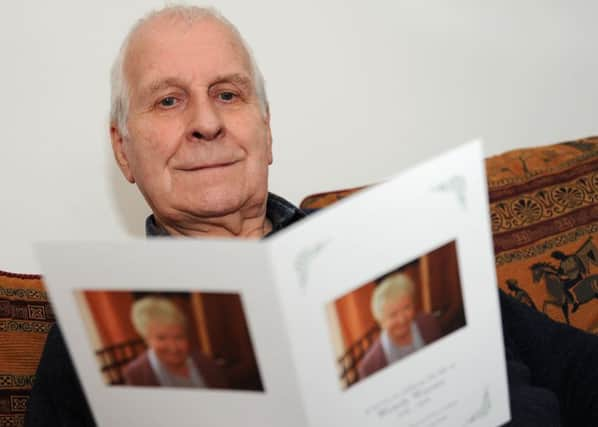Derbyshire man keen to raise awareness of rare condition


Wendy Warner was diagnosed with dementia four years ago and sadly passed away in January, aged 76.
But it was not until the last few weeks of her life that she was also found to have aspiration pneumonia – a rare condition infecting the lungs – but more common in people with dementia.
Advertisement
Hide AdAdvertisement
Hide AdHer husband, John, 78, of Chartwell Avenue, Wingerworth, said: “During the last few months of her life she wasn’t eating or drinking well and we found she often coughed during eating and drinking.
“She used to get a runny nose when eating. It has been suggested, on the internet, that the brain tells the body to produce a runny nose rather than saliva when eating.”
John said that Wendy went into Chesterfield Royal Hospital on January 1 after she was not feeling well and died on January 13.
While Wendy was in hospital, she was found to have aspiration pneumonia and her medication had to be taken in liquid form and her meals blended, all to help with the swallowing process. John is now keen to raise awareness of the signs to look out for because he says he was not fully aware of all the complications that dementia can cause and wishes he had known sooner.
Advertisement
Hide AdAdvertisement
Hide Ad“I wish I had been made fully aware because I might have been able to extend her life,” John said.
He added: “She enjoyed life and loved going away.”
John and Wendy married in 1962 and have two sons and four grandchildren.
As part of Swallowing Awareness Day (March 14) we spoke to Michaela Wright, the head of adult speech and language therapy at Chesterfield Royal Hospital NHS Foundation Trust, to find out more information about aspiration pneumonia...
What is aspiration pneumonia?
The body uses the vocal cords as a protective mechanism when swallowing to stop food or drinks “going down the wrong way” into the lungs rather than the stomach.
Advertisement
Hide AdAdvertisement
Hide AdIf this protection fails and food and drinks get into the airway below the level of the vocal cords this is known as aspiration.
People can aspirate little bits of food or fluids over a period of time or develop aspiration suddenly for example after a stroke or head injury.
The food or fluids which have gone into the lungs start to break down and this is when a chest infection develops which can then develop into aspiration pneumonia.
What should people look out for which might indicate aspiration pneumonia?
Coughing when drinking and/or eating
A wet or gurgly sounding voice
Sounding chesty or wheezy
Having repeated chest infections
What’s the link with dementia?
Advertisement
Hide AdAdvertisement
Hide AdDementia is an umbrella term for a group of neurological diseases that progressively alter cognitive and physical abilities.
As the dementia progresses the neurological functions in the brain that manage eating, drinking, swallowing can become affected making swallowing difficulties including aspiration, common for individuals with dementia.
Speech and language therapists can help with managing swallowing difficulties and provide assessment advice and support on what might help.
You can access speech and language therapists through your GP.